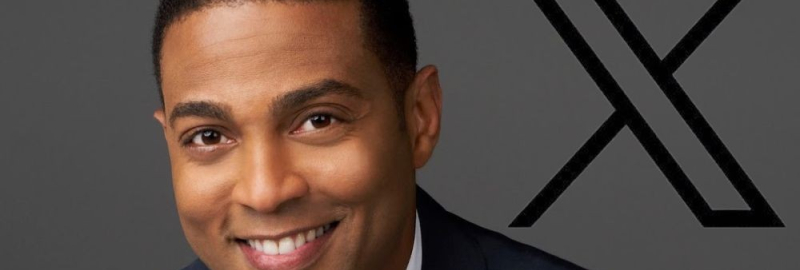
In a world where the concept of free speech is becoming increasingly complex and contentious, Elon Musk has become one of its most vocal proponents. Yet, the tech titan's latest actions suggest a disconnect between his principles and practices at X, the social platform formerly known as Twitter. The abrupt cancellation of a media deal with former TV personality Don Lemon has raised eyebrows and sparked discussions on the boundaries of free speech in the era of digital media monopolies.
Don Lemon's planned move to X, with a deal to host an exclusive talk show, has been nixed. This cancellation comes amid Musk's continued advocacy for unbridled free speech, a stance which he has publicly supported numerous times. However, Lemon suggests that his probing questions during an interview with Musk may have led to the cancellation of his show, despite reassurances from X that he can still publish content. This incident raises the question of whether free speech is truly upheld on the platform or if it's selectively applied based on the whims of its owner.
Musk's rationale for canceling Lemon's show was harshly critical, accusing it of lacking originality and authenticity — essentially, it was labeled a social media extension of a declining CNN. This stance appears to undermine the spirit of free speech Musk often champions, particularly as it seems to stifle a potential space for open dialogue and diverse perspectives on X's platform. While Musk has arduously argued for the right to express unpopular opinions, his actions regarding Lemon's canceled deal suggest a less tolerant approach when such opinions are directed at him.
Aside from Lemon's canceled deal, the broader picture of X's "video first platform" vision is not as vibrant as anticipated. The initial excitement surrounding the platform's push into TV-like content has faced several setbacks, with prominent figures like Tucker Carlson, Paris Hilton, and MrBeast encountering challenges or reassessing their participation. These occurrences suggest a rocky road ahead for X's aspirations to be a major player in the video content space, conflicting with their ambitions to offer a censor-free zone for content creators.
In conclusion, the termination of Don Lemon's content deal with X is not only a strike to Lemon himself, but it also punctures the image Musk has cultivated as a steadfast supporter of free speech. It seems as though Musk’s actions are setting a precedent that may deter future content creators from engaging with the platform, lest their content displeases the owner. Musk's actions against Lemon bring to light the quandaries faced by platforms that profess to promote free debate while simultaneously holding the reins on what can be shared, shining a spotlight on the inherent tensions between platform ownership and free expression in the digital age.